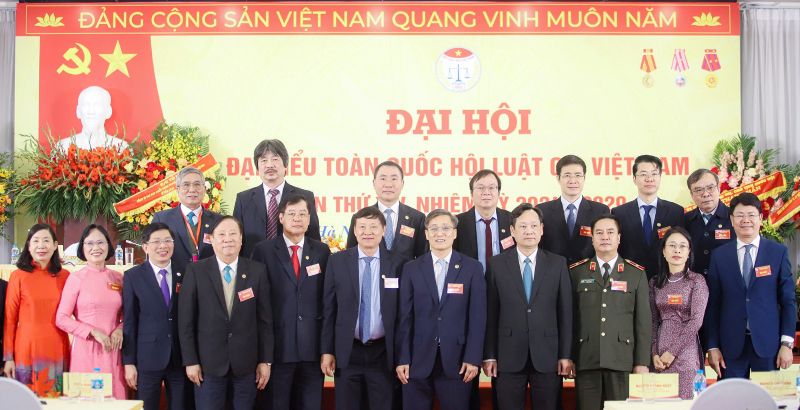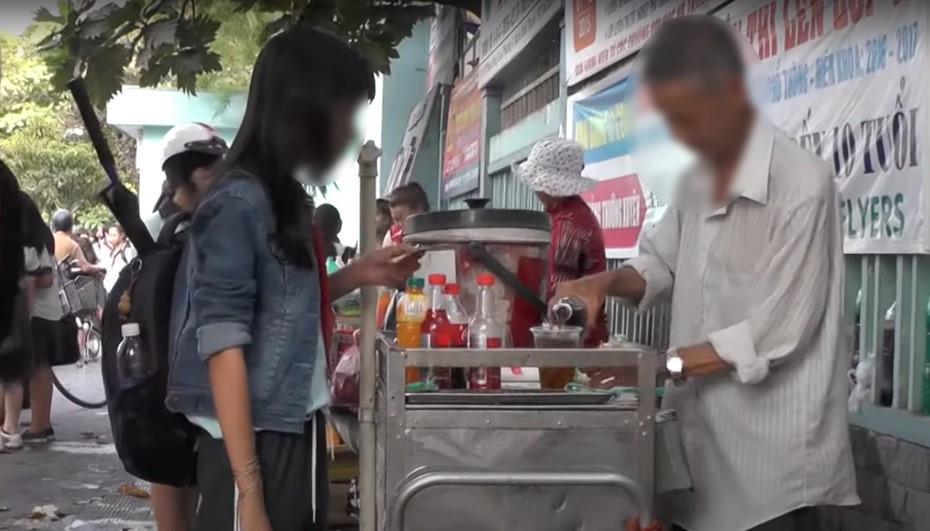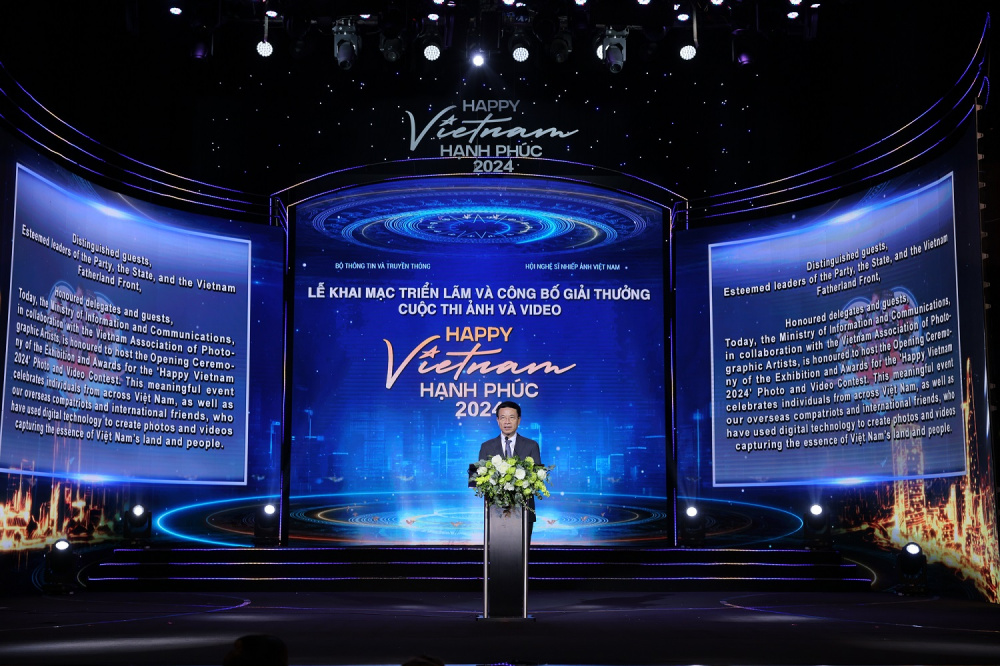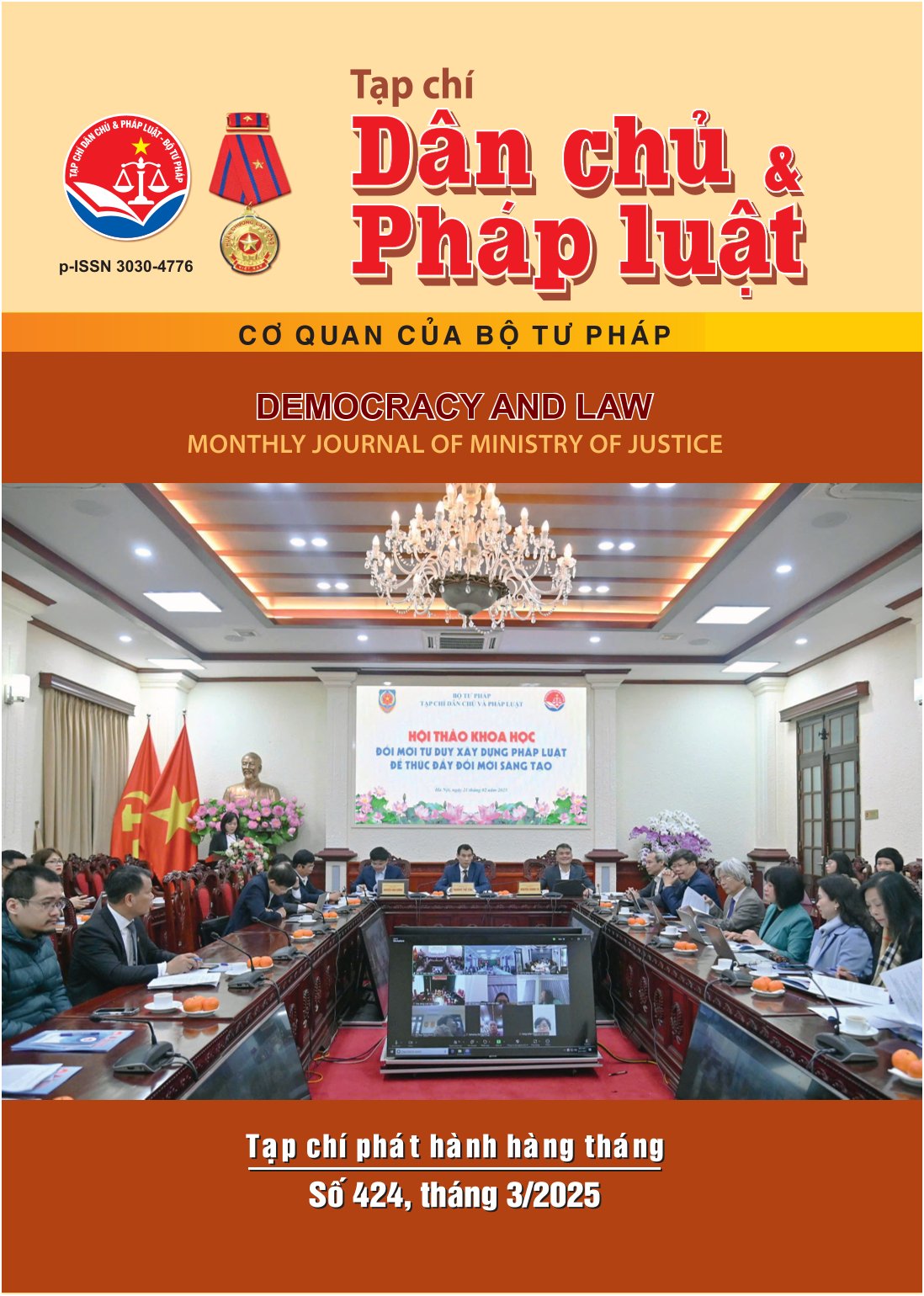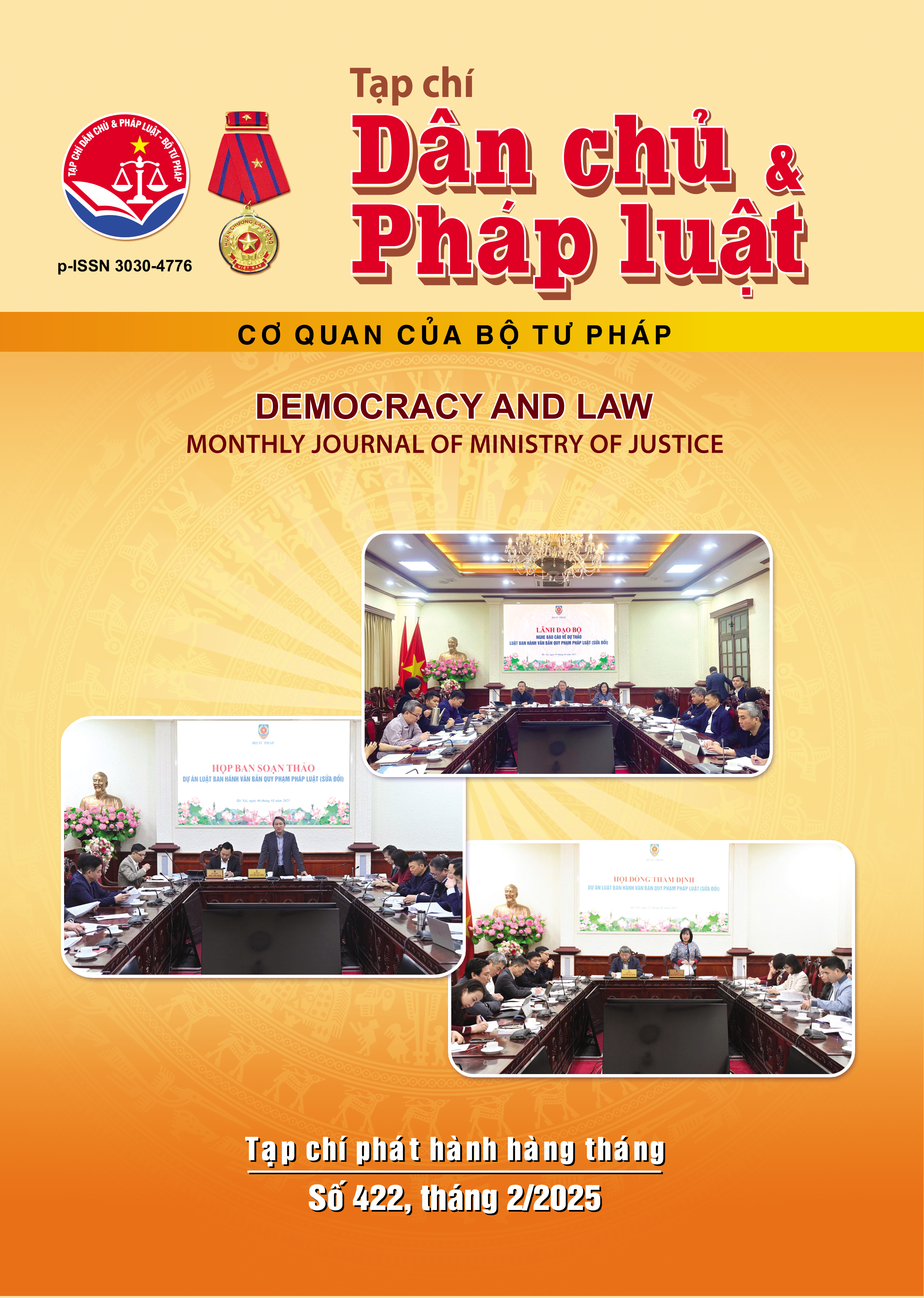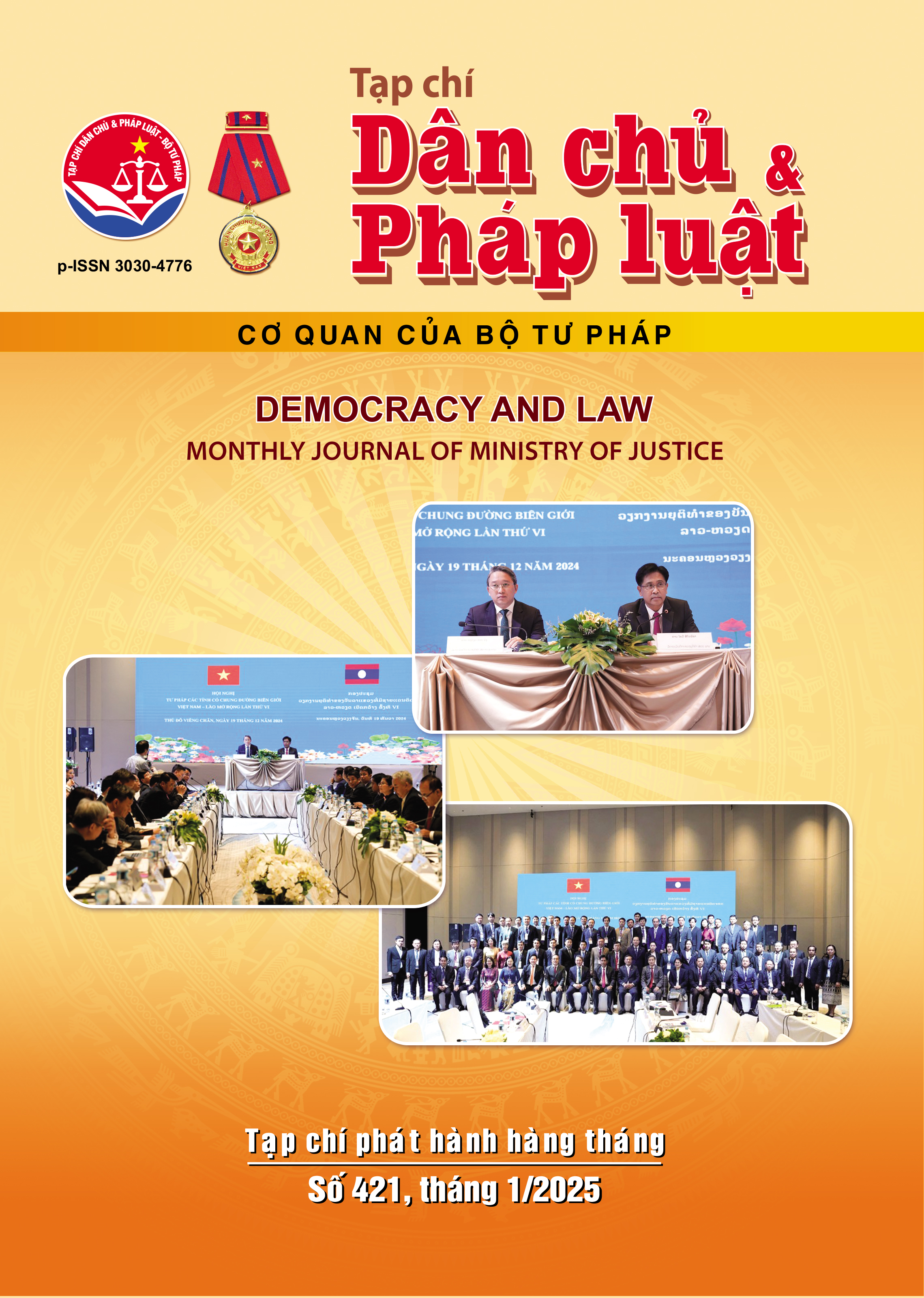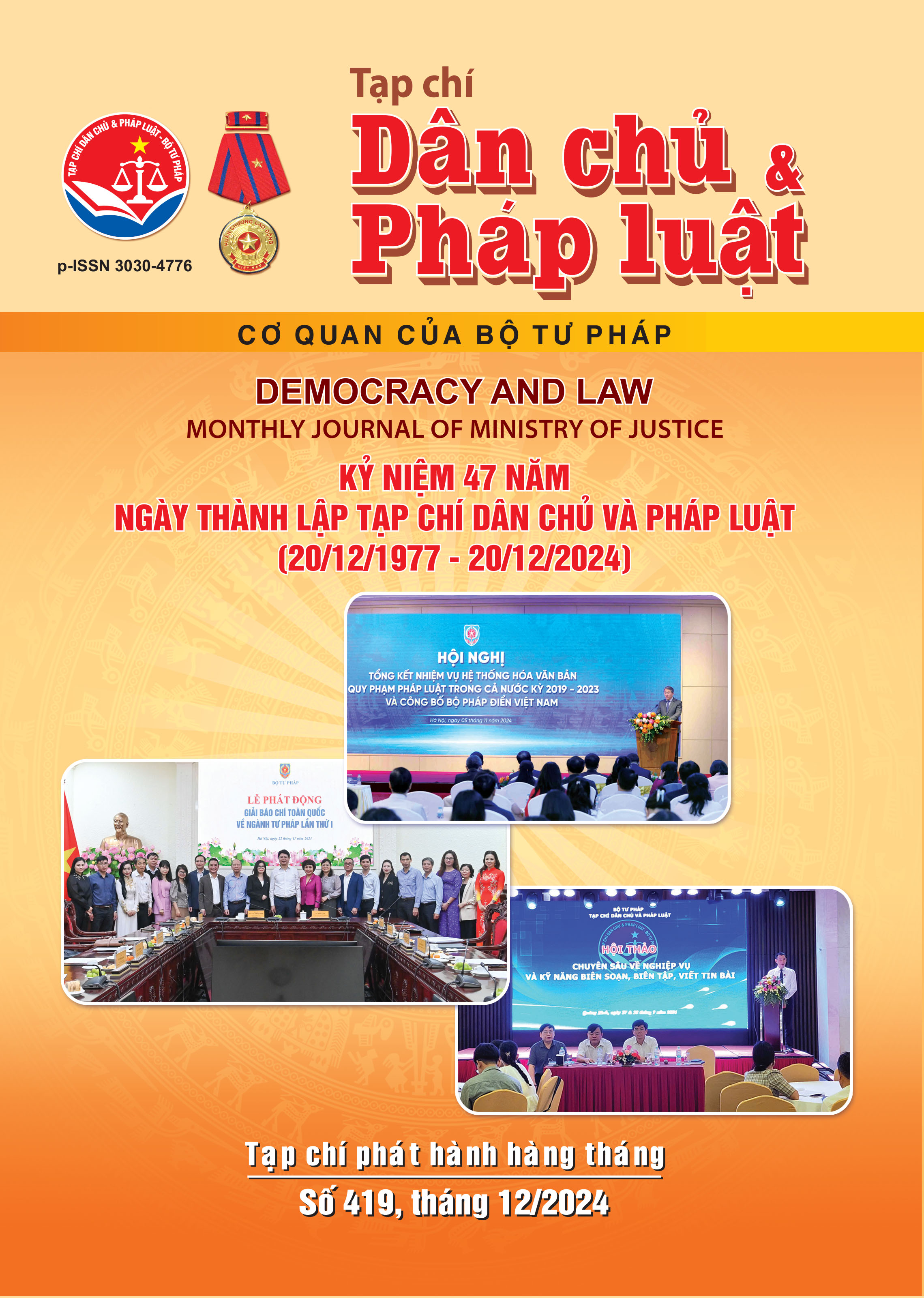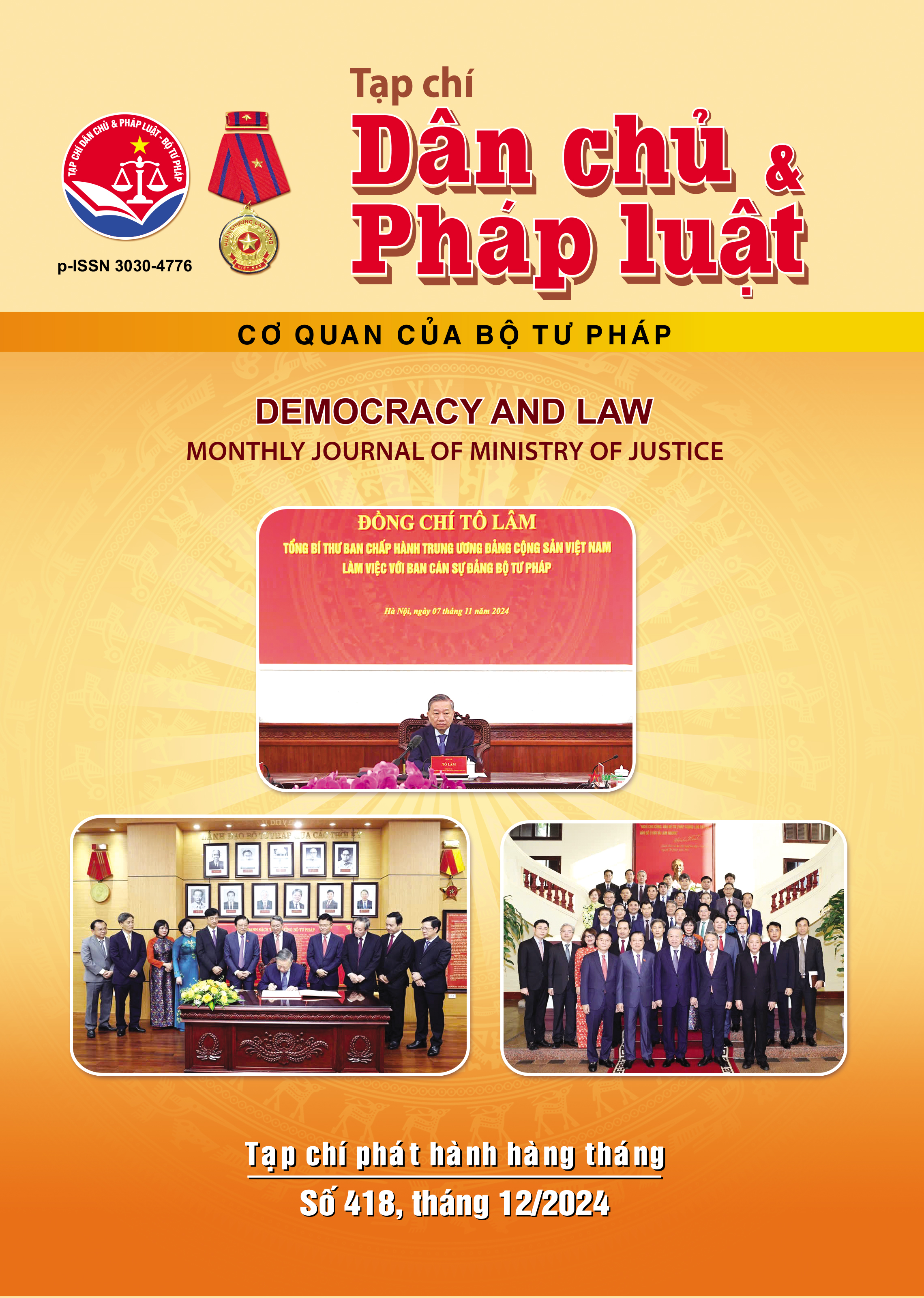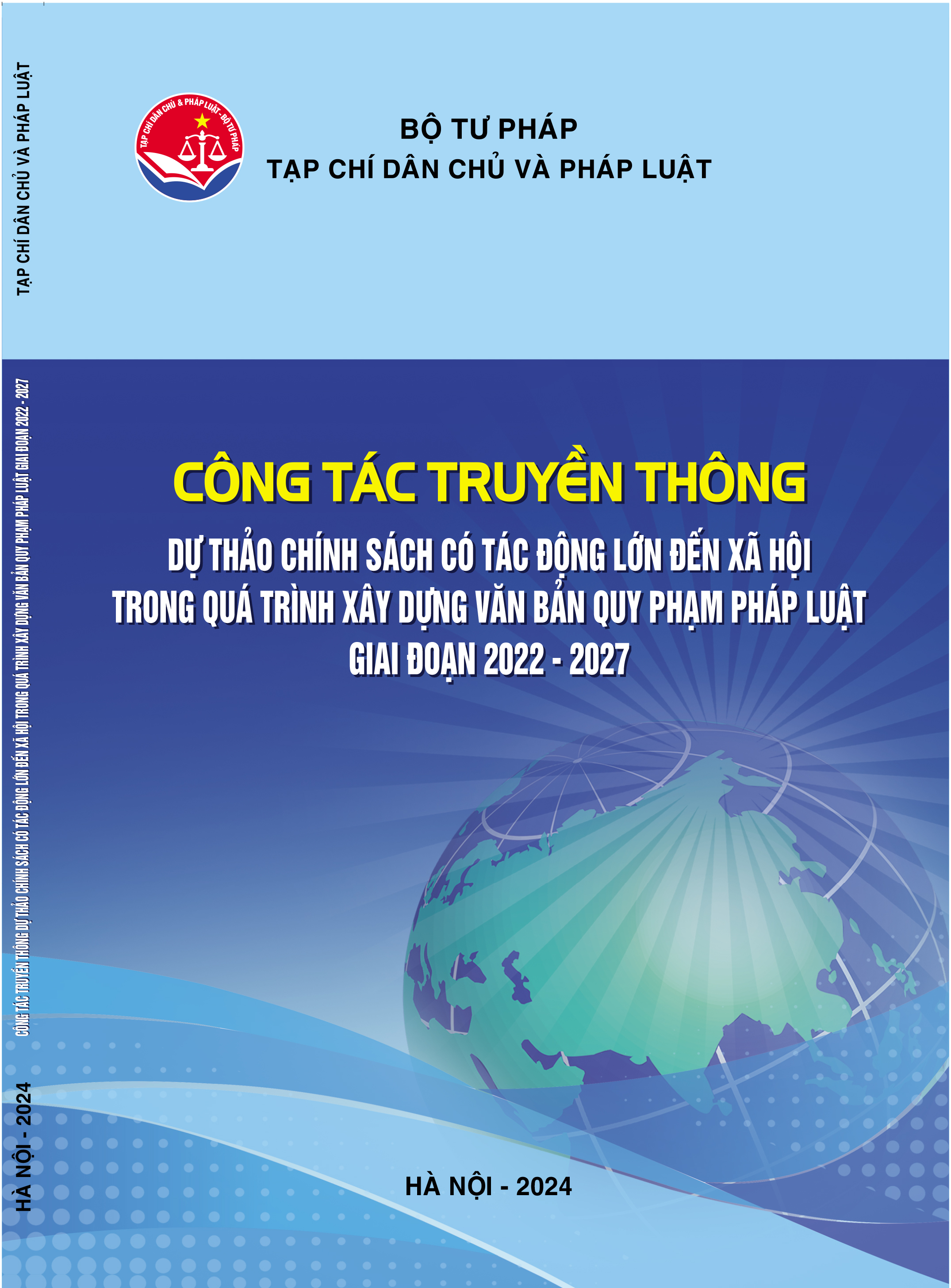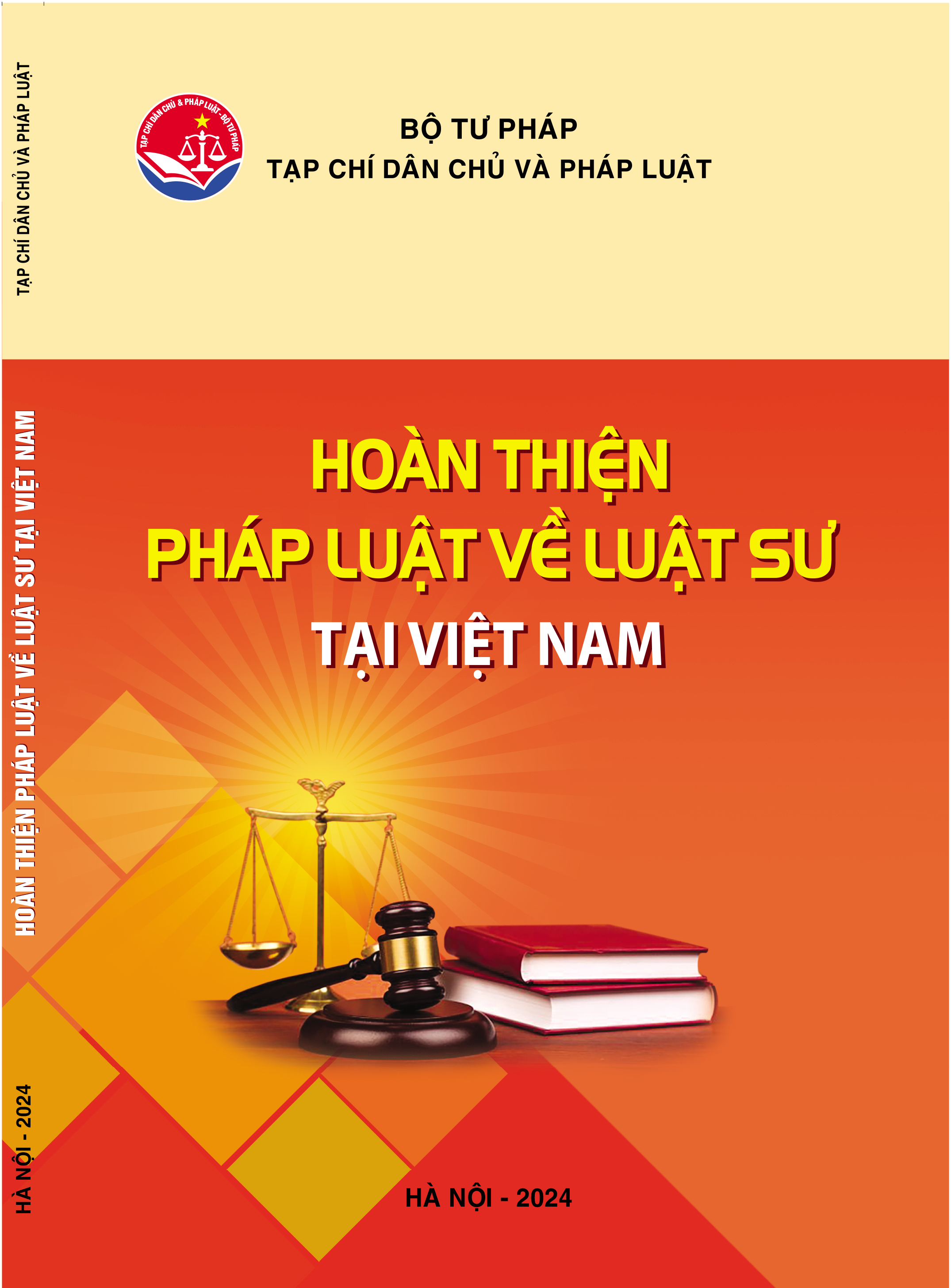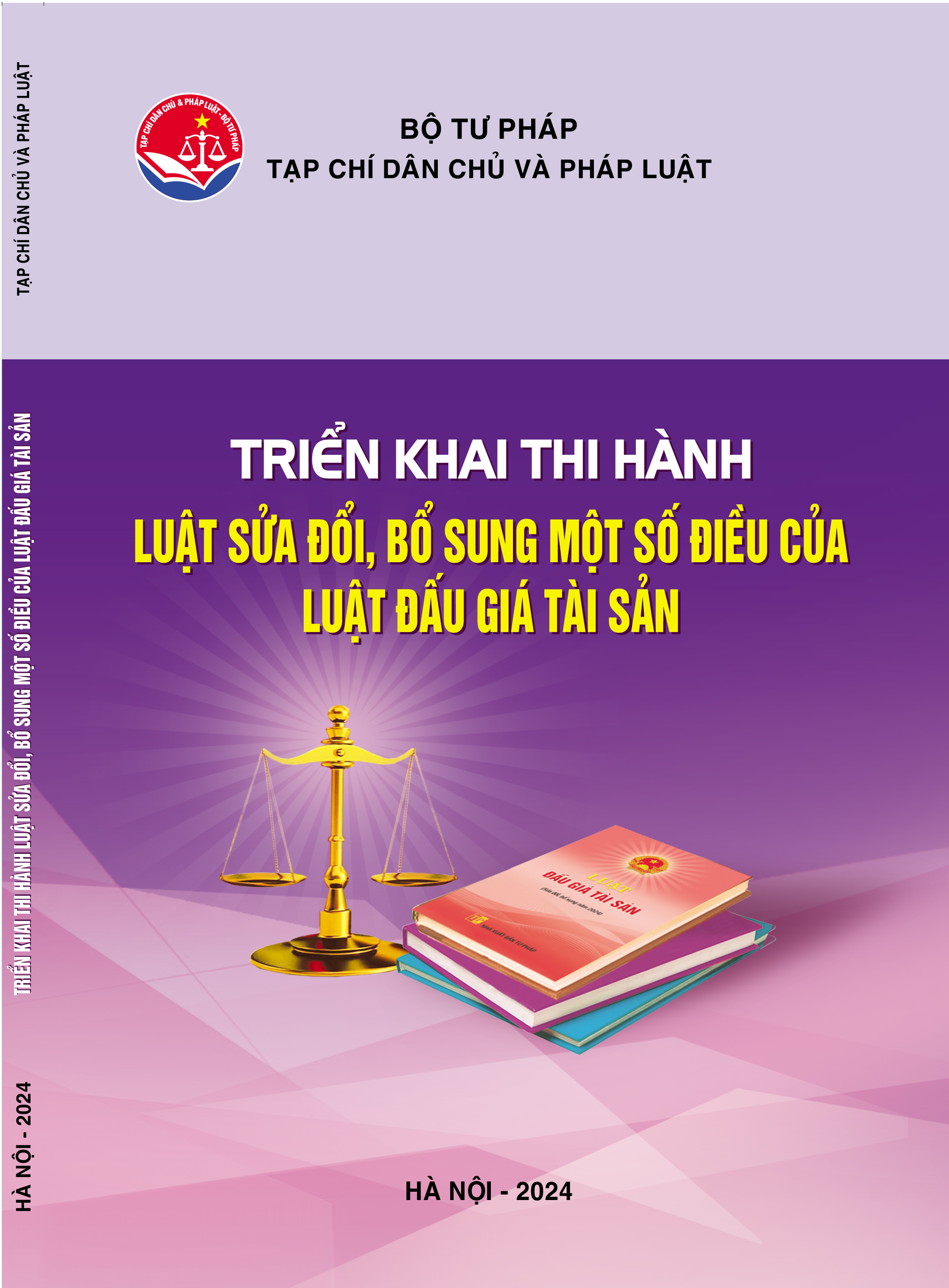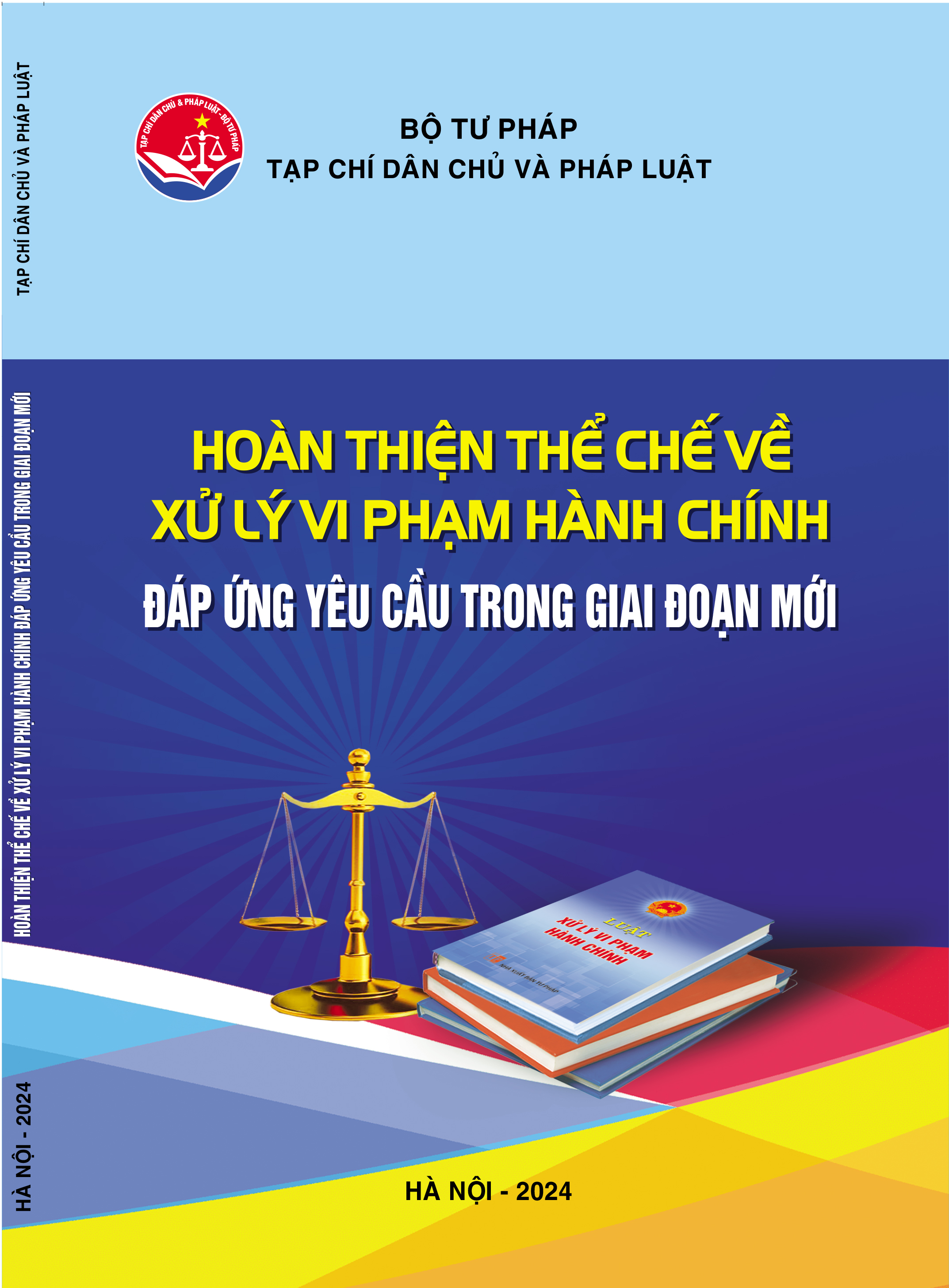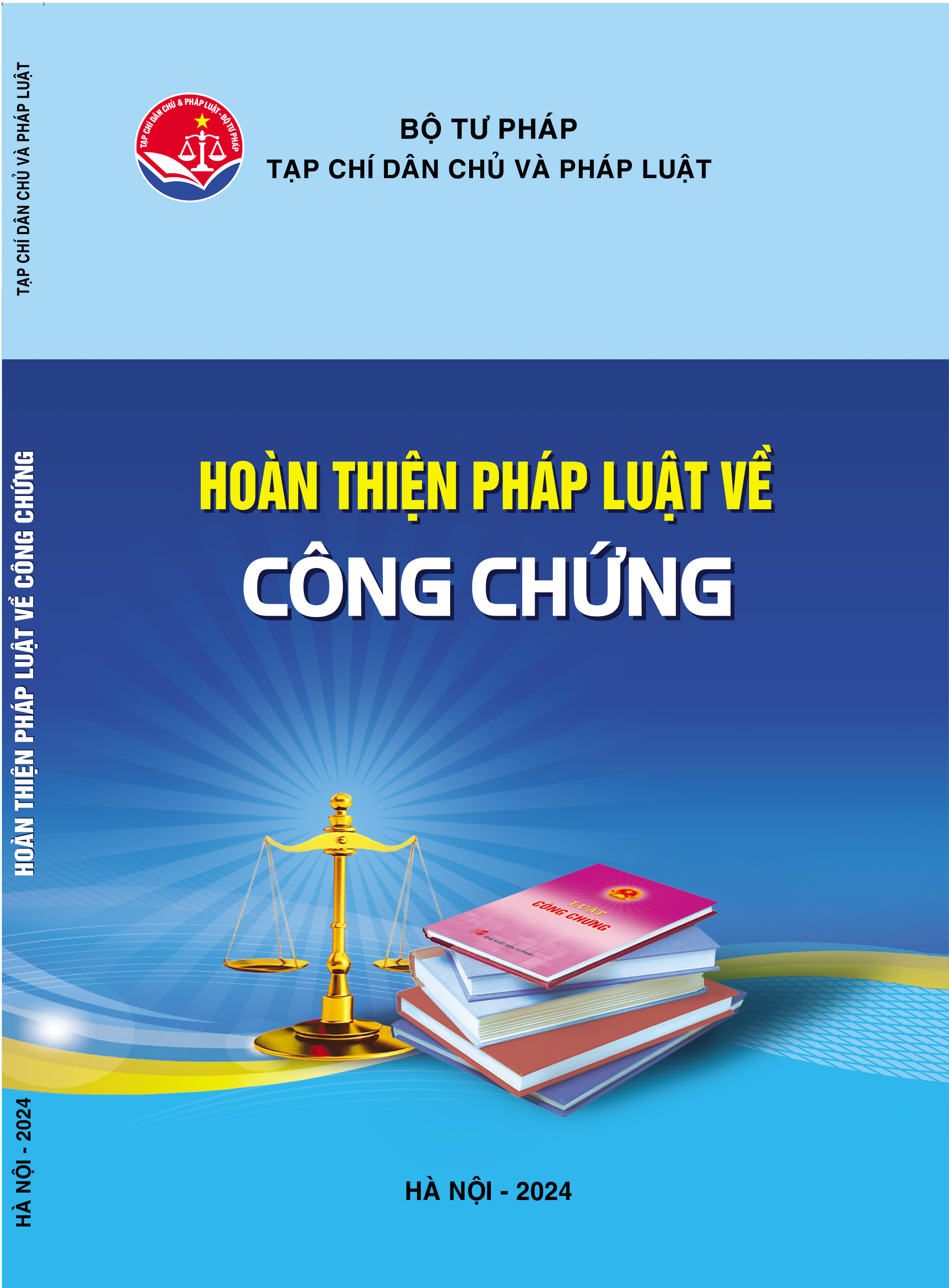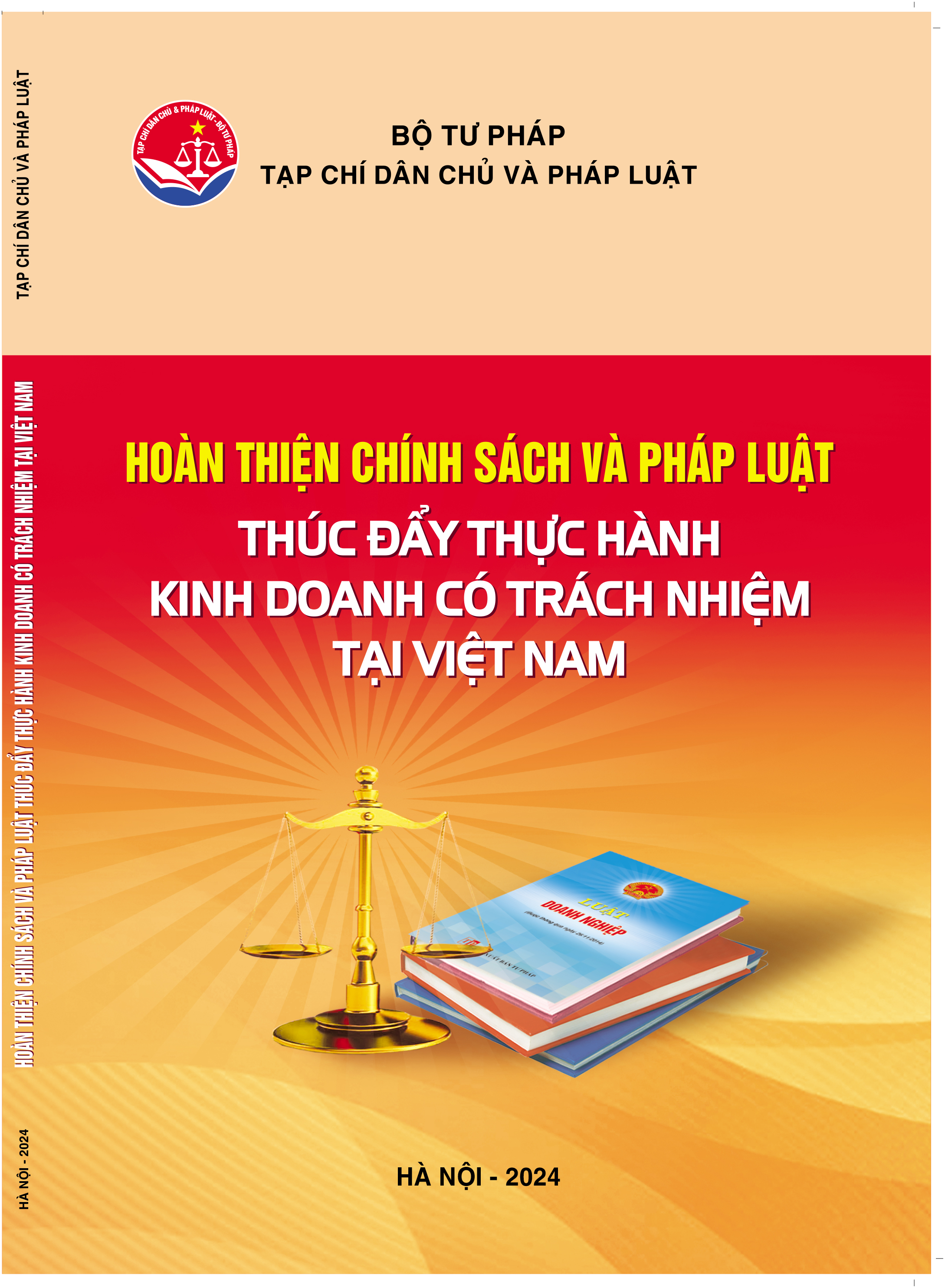CONTENTS
RESEARCHING, MAKING AND COMPLETING LAWS
1. NGUYEN DINH VAN - Completing the provisions of the 2015 Penal Code on crimes of property infringement with appropriation nature
The article analyzes some general issues on crimes of property infringement with appropriation nature, clarifies the difficulties and inadequacies in the provisions of the 2015 Penal Code, amended and supplemented in 2017 (2015 Penal Code) on these crimes, thereby making some recommendations to improve the provisions of the 2015 Penal Code on crimes of property infringement with appropriation nature
2. DUONG HONG NHUNG - Completing the provisions on invalid arbitration agreements in the 2010 Law on Commercial Arbitration
The right to freely agree on arbitration reflects the will and legitimate aspirations of the parties to a business or commercial dispute in resolving the dispute and must be implemented within the legal framework, specifically the legal provisions on the conditions for the validity or invalidity of an arbitration agreement. The article focuses on analyzing the cases of invalidity of arbitration agreements and the legal consequences of invalid arbitration agreements; the practical application of legal provisions on invalid arbitration agreements; at the same time, clarifies some difficulties and inadequacies of legal provisions on invalid arbitration agreements; thereby, making some recommendations for improving the law related to this issue.
3. DUONG VAN QUY - Representative theory and the role of independent members of the board of directors in joint stock companies under Vietnamese law
The article analyzes the current legal regulations of Vietnam on independent members of the board of directors, on that basis, evaluates the effectiveness of these regulations in preventing and limiting abuse of power in corporate governance.
EXCHANGE AND ORGANZATION OF LAW IMPLEMENTATION
4. TRAN LINH HUAN & PHAN THI KIM NGAN - Current legal situation on noise pollution control in residential areas in Ho Chi Minh City and solutions to overcome them
With high population density, rapid urbanization and strong economic development, the noise situation in residential areas in Ho Chi Minh City is becoming increasingly serious. In recent times, although the City has implemented many necessary solutions to control noise pollution in residential areas, they have not been really effective due to certain limitations and shortcomings in regulations and law enforcement on this issue. This article analyzes, evaluates and clarifies limitations and shortcomings in regulations and law enforcement on noise pollution control in residential areas through the practice of Ho Chi Minh City, thereby proposing some solutions to overcome them.
5. HOANG TRUNG HIEU & PHAN THUA AN - Limits on freedom of agreement on content related to information security assurance in contract conclusion
The article clarifies the limits of freedom to negotiate terms related to information security assurance in contract conclusion, thereby proposing some recommendations to improve the law, ensure harmony of interests between subjects and protect information security in contractual relations in Vietnam today.
6. NGUYEN KIM HUNG - Solutions to enhance the effectiveness of law implementation on land use planning towards achieving sustainable development goals
Land use planning plays an important role in orienting socio-economic development, ensuring equity in land access and environmental protection. In the context of Vietnam's commitment to implementing the United Nations Sustainable Development Goals, the 2024 Land Law has made important amendments to improve the effectiveness of land use planning. The paper studies, analyzes the relationship between the Sustainable Development Goals and land use planning, assesses the level of compliance of Vietnamese law with the core standards of sustainable development, and points out shortcomings and obstacles. From there, it proposes solutions to improve the law and improve the effectiveness of law enforcement on land use planning, contributing to the implementation of the Sustainable Development Goals for our country.
INTERNATIONAL LAW
7. NGUYEN MINH TUAN - Changes in the legal system of European countries under the impact of globalization
The article analyzes the impact of globalization through specific cases in Germany, France, Sweden and some other European countries, and at the same time, evaluates the prospects of legal cooperation, contributing to clarifying the changes in Europe in the face of this trend.
8. LE THI HONG LIEU - Compatibility of Vietnamese law with the Comprehensive and Progressive Agreement for Trans-Pacific Partnership on the right to work
The article analyzes and evaluates the compatibility level between Vietnamese law and the Comprehensive and Progressive Agreement for Trans-Pacific Partnership (CPTPP) on the right to work, thereby proposing solutions to improve the law to ensure harmony between Vietnamese law and international commitments to which Vietnam is a member.
9. TRAN QUANG HUY & VU HAI DANG - Some orientations for delimitation of the extended continental shelf between Vietnam and Malaysia according to international law
In 2009, Vietnam and Malaysia submitted to the United Nations Commission on the Limits of the Continental Shelf (CLCS) a Joint Submission on the overlapping continental shelf area beyond 200 nautical miles between the two countries in the southern part of the East Sea. Although the CLCS postponed the consideration of the Joint Submission of the two countries due to the objections of China and the Philippines, this did not affect the legitimate maritime rights of the two countries, which are the jurisdictions and power of competence over their maritime zones as determined under the 1982 Convention on the Law of the Sea. This article proposes orientations for the delimitation of the Joint Submission Area of the continental shelf beyond 200 nautical miles between Vietnam and Malaysia, on the basis of applying relevant provisions of international law.
10. LE THI BICH THUY - Exemption from notification of economic concentration - Experience of some countries in the world and recommendations for improving Vietnamese law
Economic concentration is the process of reducing the number of independent enterprises in the market through mergers, consolidations, acquisitions or joint ventures to expand scale and improve competitiveness. This act helps optimize resources but also has the potential to limit competition, leading to a monopoly, negatively affecting the market and consumers. Competition law of the US, the European Union, and Japan controls economic concentration through regulations on transaction notification and exemptions from notification for economic concentration acts that have little impact on the market. Based on the experience of these countries in cases of exemption from notification of economic concentration, the study makes some recommendations to improve Vietnamese law.
11. NGUYEN THI PHUONG - Rights of heirs to property obligations left by the deceased - From a comparative perspective of the French Civil Code
The article analyzes and compares the rights of heirs to property obligations left by the deceased between the 2015 Civil Code of Vietnam and the French Civil Code; thereby, pointing out the similarities and differences between the provisions of the two Codes and making recommendations to improve the 2015 Civil Code in resolving issues related to the rights of heirs to property obligations left by the deceased.







